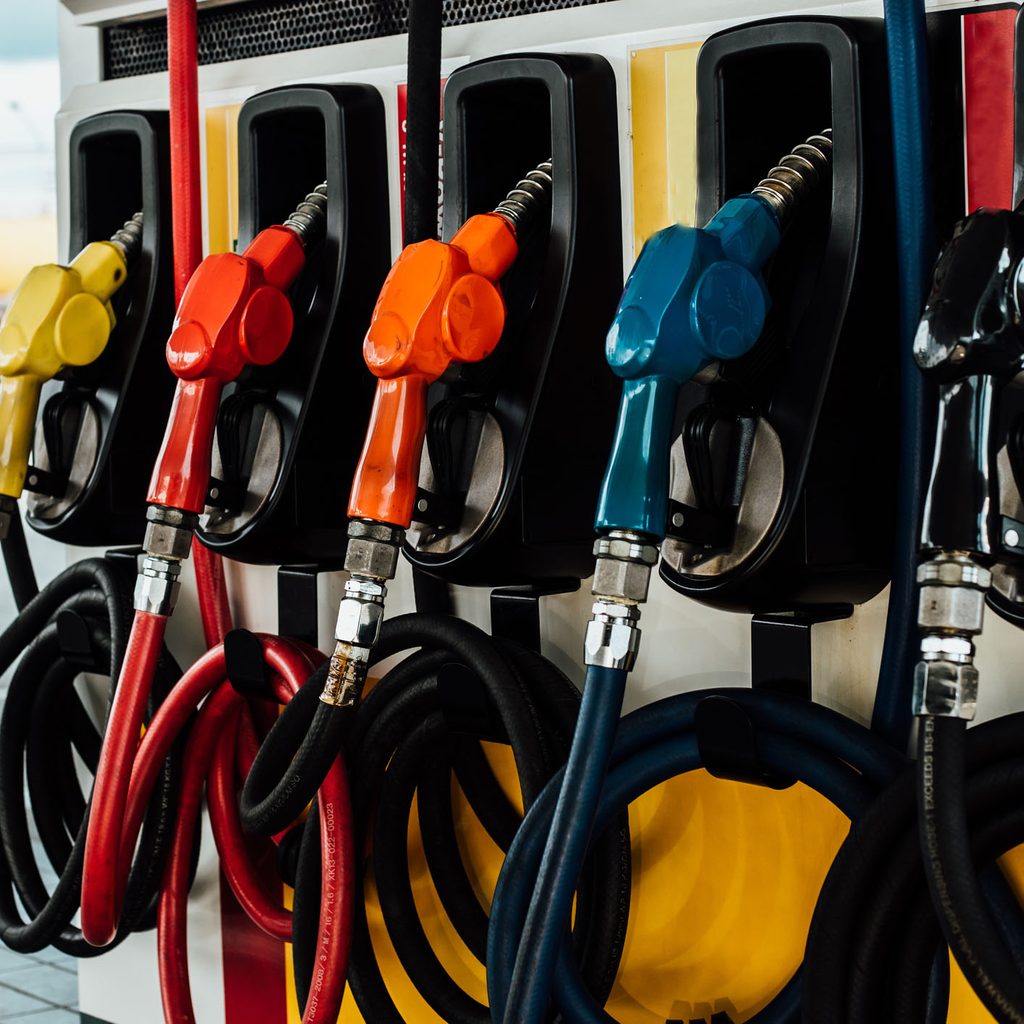Regular vs. Premium Gasoline: Does It Really Matter Which You Use?
Updated: Aug. 18, 2021

Find out the difference between premium and regular gas and whether you should run premium gas in your car.
You see all the options of gas at the pump every time you fill up but what is the difference between the octanes? Sure, premium costs a little more than regular gas, but is premium any better for your car than regular gas? Learn 10 things you need to know about gasoline.
On This Page
Regular vs. Premium Gasoline
The first difference you notice between regular and premium gasoline is the number that goes with both. Regular gasoline is rated at 87 octane in most states while premium is rated at 91 or 93. What does that mean?
Gas with a higher octane can withstand a higher compression before detonating, meaning the higher the octane, the lower the likelihood the fuel will detonate at the wrong time. If detonation happens at the wrong time frequently, it can harm your engine.
Cars that have high compression ratios or turbochargers usually need premium gas for optimal performance and fuel efficiency.
Is Premium Worth It?
Premium comes with an additional cost at the pump, usually about 50 cents more per gallon, and premium gas has no effect on vehicles that don’t need it. But if you have an older car that’s designed for 87-octane gas and it knocks when you punch the pedal, try filling it with 89-octane fuel to see if the knock goes away. If so, keep using 89-octane to regain some power and save your engine.
If Your Car Requires Premium, Use Premium
If your car requires premium, then you should fill it up with premium because if you run lower octane fuel, your car will have less power and lower fuel efficiency. If you use a lower octane fuel it can lead to engine knock as well as increased emissions.
If your car only recommends premium gas then it’s up to you on which fuel to use. AAA found that vehicles which recommended premium fuel saw an increase in performance.
Detergents are More Important Than Octane
The detergents in gasoline will help keep your engine clean and running its best. There are a number of retailers that use Top Tier fuels because they have more detergents than EPA minimum requirements.
Are There Any Gas Additives Worth Using?
No ‘magic’ or ‘revolutionary’ additives will increase your fuel efficiency. However, some owners like to add fuel-system cleaning additives periodically. Many companies make the type you add to your tank. The most effective ones have polyisobutylamine (PIBA) and polyetheramine (PEA), so look for one of those ingredients on the label. Follow the product’s directions for treat rates. Avoid all other gas additives!